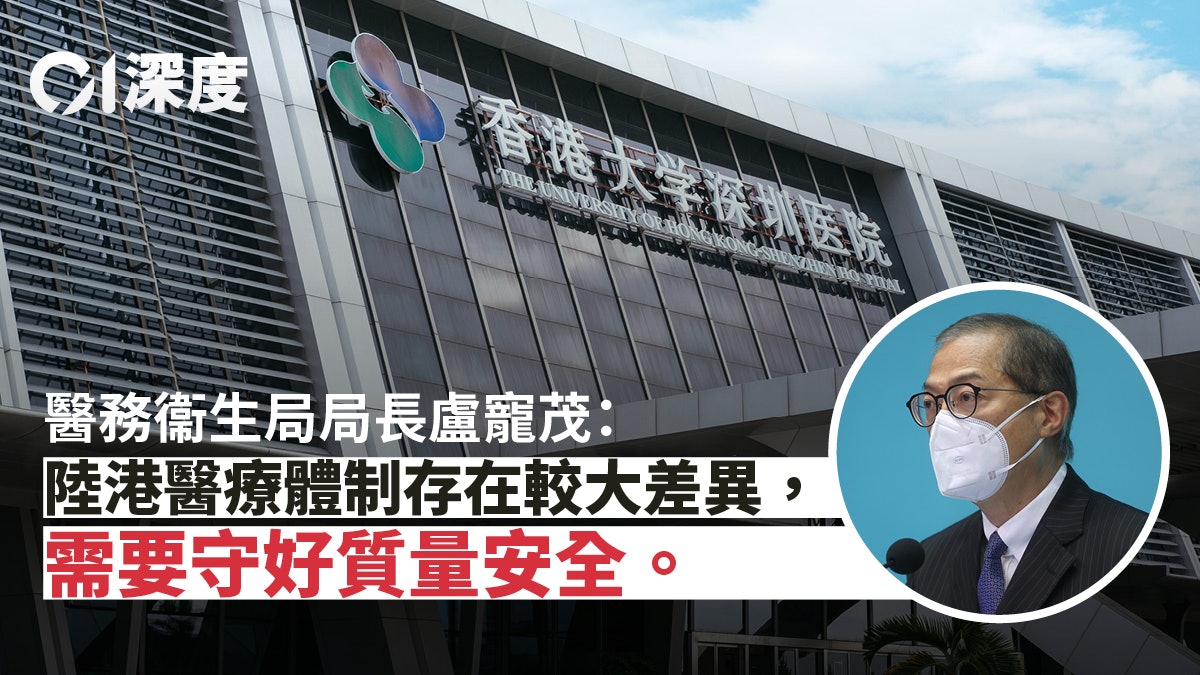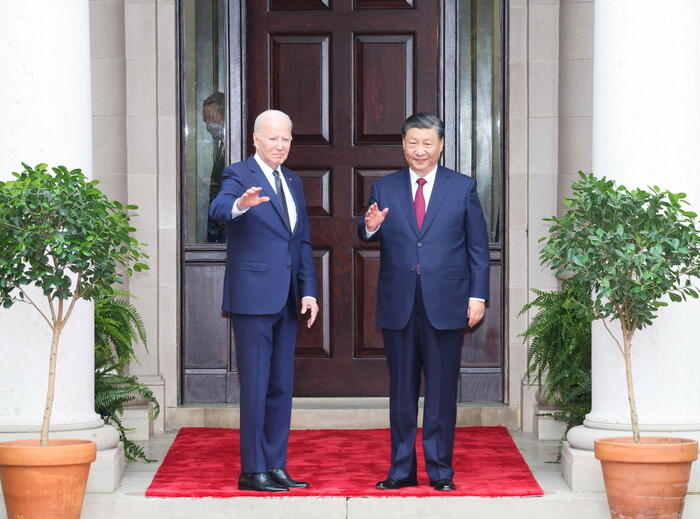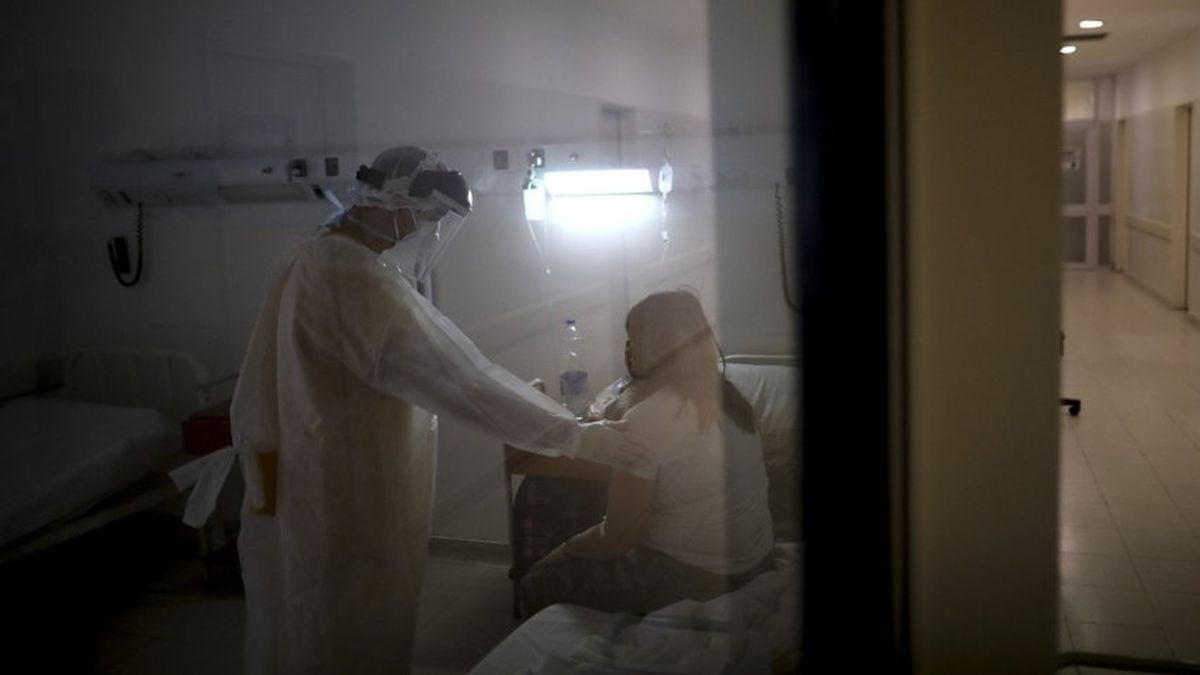Last Thursday (November 24), the Legislative Council passed the "promoting cross-border medical cooperation" bill proposed by Huang Guo, a member of the election committee of the Federation of Trade Unions.
Many lawmakers believe that Hong Kong's primary medical care is under great pressure and the waiting time for specialist medical services is long, so they urge the government to expand the plan to facilitate Hong Kong people's medical treatment in the Mainland.
In response, Lu Chongmao, Director of the Medical and Health Bureau, mentioned that there is a big difference in the medical system between mainland and Hong Kong, and hopes to continue to use the Shenzhen Hospital of the University of Hong Kong as a pilot to radiate the cooperation experience between the two places.
However, the HKU-Shenzhen Hospital has been in operation for ten years, but its successful model has not been successfully replicated to other mainland hospitals. In addition to institutional differences, what are the obstacles that slow down the process of cross-border medical two-way cooperation?
HKU-Shenzhen Hospital has been in operation for ten years, but its successful model has not been successfully replicated to other mainland hospitals.
(profile picture)
The medical needs of mainland Hong Kong people are urgent
The "Promoting Cross-Border Medical Cooperation" motion urges the SAR government to expand the plan to facilitate Hong Kong people's medical treatment in the Mainland, including expanding the scope of medical voucher services for the elderly, promoting the interoperability of mainland and Hong Kong medical insurance, participating in the hospital quality assessment system formulated by the Mainland, and cross-border use Electronic medical records, two-way implementation of "Hong Kong-Macao Medicine and Device Link", deepening interaction with medical institutions in mainland cities in the Guangdong-Hong Kong-Macao Greater Bay Area, regularizing the special support plan for patients with chronic diseases to follow up at the University of Hong Kong-Shenzhen Hospital and expanding it to specialist services, and then applying successful experience Expanded to tertiary hospitals in nine mainland cities in the Greater Bay Area to facilitate Hong Kong people who have waited too long in Hong Kong to go north for medical treatment.
"Who should take care of our medical needs?" Guan Haoming, the election committee member, mentioned when debating the bill. When he asked many elderly people whether they would like to return to the mainland for retirement, the other party was very willing, but worried that they would not be able to enjoy the benefits like Hong Kong. Convenient, reliable, and affordable medical care.
According to the statistics of the Census and Statistics Department of the Government, the number of Hong Kong residents staying in Guangdong Province for half a year or more at the end of 2021 will be 523,300, of which 85,100 are residents over the age of 65, accounting for about 16% of the total number of staying residents.
For Hong Kong residents living in the Mainland for a long time, especially the elderly, convenient and cheap medical services are an important demand for them.
The University of Hong Kong-Shenzhen Hospital, which has been repeatedly mentioned by members, is currently the only hospital in the mainland that adopts the Hong Kong management model, and it carries a number of medical treatment plans that benefit Hong Kong people in the mainland.
Take the medical vouchers for the elderly, for example. The authorities have launched a pilot program at the HKU-Shenzhen Hospital since 2015. As of the end of October this year, more than 11,000 eligible seniors have used the vouchers at the HKU-Shenzhen Hospital, involving more than HK$38 million in transaction funds.
Another example is the special support plan for chronically ill patients who are unable to return to Hong Kong for follow-up consultations due to the impact of the epidemic. Since November 2020, the authorities have entrusted the University of Hong Kong-Shenzhen Hospital to follow up the consultation services. As of September this year, 53,900 appointments have been arranged for eligible persons.
These figures can only reflect part of the situation, that is, the actual demand is even greater, because for the elderly living in remote areas, it is not easy to travel several hours to Shenzhen for medical treatment.
Public hospitals in Hong Kong are understaffed, and the waiting time for patients is long. However, if the topic of "cross-border medical cooperation" is only focused on how to facilitate Hong Kong people to seek medical treatment in the Mainland, it will undoubtedly push related medical problems to the Greater Bay Area.
(profile picture)
Is it difficult for HKU-Shenzhen Hospital to replicate?
It is natural for a hospital to carry the expectations of so many people.
At the beginning of last month, when the Subcommittee of the Legislative Council on Promoting the Development of the Guangdong-Hong Kong-Macao Greater Bay Area was discussing the development of medical services, some members proposed to extend the scope of application of elderly health care vouchers to hospitals outside the University of Hong Kong and Shenzhen; "Medical Cooperation" Members' motion debate, medical vouchers are still attracting the attention of Members.
However, Lu Chongmao, the Secretary of the Medical and Health Bureau, responded that the operation mode and management of hospitals in the Mainland and Hong Kong are different, and there are so many tertiary hospitals. The operating model of the Shenzhen hospital radiates to other mainland hospitals.
In addition, many members of Parliament have requested the SAR government to promote the cross-border exchange of electronic medical records, but the Medical and Health Bureau also emphasized the difficulty of differences in medical systems between mainland and Hong Kong.
The authorities explained that the exchange of medical records involves complex data and administrative arrangements. Hong Kong’s Hospital Authority and Yijiantong systems are quite advanced and can connect information from the public and private medical markets. However, there is no relevant arrangement between different hospitals in the mainland. In order to fully connect with hospitals in the mainland, it is necessary to connect with every system of every hospital. At present, only the data system of the Shenzhen Hospital of the University of Hong Kong can meet the docking requirements of the Hong Kong Hospital Authority to a certain extent.
Data security issues are important, but relying on technology to solve them is not without precedent.
Many regions have introduced blockchain technology to save medical data and realize data exchange while ensuring security.
As early as 2016, Estonia cooperated with the data security start-up Guardtime to use blockchain technology to ensure the safety of 1 million patient medical records.
FISCO BCOS, a blockchain underlying platform developed by mainland enterprises, tried out a Guangdong-Macao cross-border data verification platform in March this year, including medical services. Residents can directly bring cross-border medical records to seek medical treatment in the Greater Bay Area. Hospitals only need to Medical record verification is performed on the platform without actually receiving patient data, which can ensure data security and patient privacy to a certain extent.
Paper medical records and electronic medical records (photo by Zhang Haowei)
Cross-border healthcare cannot be limited to one-way measures
Not only Hong Kong people in the mainland have high hopes for HKU-Shenzhen Hospital, but many members of the Legislative Council and government officials also regard it as one of the means to relieve the pressure on the local medical system.
Huang Guo pointed out that Hong Kong's medical care is facing "three losses": the waiting time of public hospitals is too long, the government's medical expenditure is increasing year by year but the results are not obvious, and the pressure of medical work is too great.
According to the "Medical Manpower Projection 2020" released by the government earlier, it is estimated that by 2030, Hong Kong will have a shortage of about 1,600 doctors, and by 2040, the shortage will expand to more than 1,900.
According to a survey conducted by the Greater Bay Area Service Agency of the Federation of Trade Unions, more than 70% of the Hong Kong residents interviewed support the implementation of cross-border medical cooperation, hoping to receive government funding to seek medical treatment at Hong Kong University-Shenzhen Hospital and other mainland tertiary hospitals.
Li Shirong, a directly elected member of the New Territories Southeast of the Democratic Alliance for the Betterment of Hong Kong, said that many citizens have reported to him that "it is very difficult to see the teeth" because the supply of dental services in Hong Kong is in short supply and the waiting time is extremely long.
He suggested that the government, in addition to increasing manpower, can also encourage citizens to seek medical treatment in other cities in the Greater Bay Area, including Macau, as a "transitional arrangement" until Hong Kong has sufficient medical manpower.
However, if there is a problem with one system, another system will be used to fill the hole, and when there is no problem, they will operate independently. This does not sound like cross-border medical care, but rather like a temporary resettlement point after a problem with the Hong Kong medical system.
In fact, in the debate on the motion of "promoting cross-border medical cooperation", although the term "Great Bay Area" appeared frequently, the focus of the discussion was still on how to facilitate Hong Kong people's medical treatment in the Mainland, but rarely mentioned two-way How to deepen inland-port medical cooperation.
Election Committee member Chen Kaixin emphasized in her speech that promoting cross-border medical cooperation does not mean blindly pushing patients to the mainland for treatment. "Transferring local medical problems to other cities in the Greater Bay Area is definitely not a solution to medical treatment. The key point of cross-border medical treatment is cooperation. ".
She also pointed out that Hong Kong's medical services are mainly composed of Western medicine, and Chinese medicine training faces the challenge of few internship opportunities. Many Chinese medical students need to go to mainland Chinese medicine service institutions for internships, but the opportunities are quite limited.
Therefore, she suggested that the government strengthen exchanges with mainland Chinese medicine institutions and increase more internship places, because the development of local Chinese medicine will help divert the pressure of primary medical care dominated by Western medicine.
Zhou Xiaosong, a member of the Legislative Council of the Labor Federation of Labor, also believes that the government should promote Chinese medicine services, divert patients from dermatology and rheumatism to Chinese medicine for initial diagnosis and treatment, and relieve their illnesses first during the waiting period.
The optimization of the system should be interlocking. Through learning from each other between different systems, challenges can be turned into new opportunities.
The medical systems in the Mainland and Hong Kong are certainly different, but instead of stagnating cross-border cooperation because of the "difference" in the systems, it is better to consider solving the actual needs of the people as a higher priority and think carefully about how to seek common ground while reserving differences.









